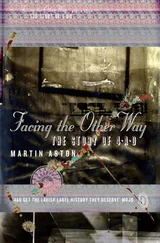I inquired whether Dorothea’s adult children did not also want a douceur.
“No,” said Selena, “they’re being all noblesse oblige —delighted to help Camilla save tax and wouldn’t dream of taking a penny for it. Their father, George Fairfax, is a successful merchant banker — I dare say they can afford to be high-minded. So we’ve simply put them on Cantrip’s brief along with Camilla. Now, Hilary, if you’ll stay quiet and not interrupt while we read the evidence about the protective trusts, explaining that there’s no danger of Jocasta or Dorothea going bankrupt or anything, we’ll all be able to adjourn to the Corkscrew.”
My solicitor has carefully explained to me the nature of the acts and events whereby I might incur a forfeiture of my protected life interest. I have conscientiously considered whether I have ever done so and am satisfied that I have not. I am not extravagant, and live without difficulty within my present income, which derives from a settlement made on the occasion of my marriage. My mother intends to leave to me by her Will the house where we now reside and the sum payable to me under the Arrangement will be sufficient to enable me to discharge those household expenses which are at present borne by her. I respectfully submit that the protective trusts no longer serve any useful purpose.
I further respectfully submit that the Arrangement is for the benefit of all minor, unborn and unascertained persons who may become interested in the settled fund and ask that the same may be approved on their behalf.
Sworn before me, a Commissioner for Oaths—
“And so forth,” said Selena. “Would you like to read Dorothea’s affidavit, Ragwort, as she’s your client?”
“I haven’t quite finished going through the birth certificates,” said Ragwort. “Would you be kind enough to read it for me?”
Dorothea’s evidence regarding her protected life interest closely resembled that given by her sister — naturally so, since Selena and Ragwort had used the same precedent. Her solicitor had explained to her with similar care the ways in which she might have forfeited her interest; she had considered with similar conscientiousness whether she might have done so; she was similarly unextravagant and able to live within her income. The house where she lived in Corfu was owned jointly by herself and her husband and she also owned a flat in Hampstead, used by her children and herself on visits to London. She earned a salary as artistic designer for a small ceramics factory near Casiope, of which she was part owner, and enjoyed a generous income — very generous, it sounded, in the circumstances — from the settlement made by her first husband on the occasion of their divorce. She respectfully submitted, and so forth.
“Ragwort,” said Selena, “you look anxious. Is something the matter?”
“Do you happen,” said Ragwort, “to know what the date is?”
“The twenty-sixth of February.”
“That’s what I thought,” said Ragwort in tones of gloom. “Deirdre’s birthday was on the twenty-third.”
“Oh well,” said Cantrip, “I don’t suppose she expected us to send her a present.”
“Her eighteenth birthday,” said Ragwort. “She’s of age.”
Without perfectly understanding why, I perceived that the prospects of adjourning to the Corkscrew had receded. Ragwort, I would have supposed, could as competently represent a girl of eighteen as one of seventeen. But no, it was out of the question — it was the duty of her Counsel, now that she was of age, to make clear to her the nature of the Arrangement and her right to give or withhold consent; she might instruct him, after receiving such advice, to negotiate other terms than those agreed by Ragwort: Ragwort, if still representing her, would be severely embarrassed.
“It’s no use,” said Timothy. “They’ll have to instruct separate Counsel for her. We’d better ring the solicitors and tell them. It’s a pity, of course, given the urgency of the application — I don’t suppose they’ll manage to find anyone in time for it to be heard tomorrow.”
“Nonsense,” said Selena, “we’ll tell them to instruct Julia. I’ll just ring through to 63 and make sure she’s still there.”
Selena’s expression, when she joined us an hour later in the Corkscrew, was that of a woman who thinks the past hour well spent. She took her place at the candlelit oak table and allowed Timothy to pour her a glass of claret.
It had turned out, she thought, rather satisfactorily. Julia was content to accept instructions, Tancred’s to give them; the appropriate telephone calls had been successfully made; and the girl Deirdre was now in a taxi on her way to Lincoln’s Inn, where Julia waited to advise her.
“It will be good for Julia,” said Selena, “to be involved in an ordinary, down-to-earth Chancery matter. With a pure Revenue practice, she’s sometimes in danger of becoming a little out of touch with real life.”
Knowing that Julia’s strategy for dealing with real life, on those rare occasions when she came across it, was to keep very quiet and hope it would go away, I feared that the grim practicalities of an application under the Variation of Trusts Act might prove too much for her; but the financial rewards, I supposed, would justify the risk.
“I did mention to Tancred’s,” said Selena, “that they were asking Miss Larwood to take the case at very short notice and that her Clerk would expect this to be reflected in the brief fee. Then I rang her Clerk, and told him what he was expecting. So I think that the fee should be not ungenerous.”
Timothy purchased another bottle of claret, and the conversation turned, as it so often does among the Chancery Bar, to the imperfections of their administrative and clerical arrangements. The tyranny of their Clerk Henry and the incompetence of the temporary typist were recalled in lingering detail and with copious illustrative anecdote. The time was passing pleasantly in this manner, and a third bottle had just been opened for us, when there stumbled through the doorway of the Corkscrew the figure of a woman: her dark hair was dishevelled, her clothing in some disorder; she gazed about her with anxious bewilderment, as if not knowing where she was, or where she ought to be. This being Julia’s habitual demeanor, we suspected nothing amiss.
Traversing successfully — that is to say, without knocking anything over or tripping on anyone’s briefcase — the distance from the doorway to our table, she sank wearily into one of the oak armchairs. I perceived at once that something was troubling her: her manner, when she greeted us, was more than usually distrait, and even her compliments to Ragwort lacked their accustomed fervor. She lit a Gauloise, drank a deep draught of claret, and looked apologetically at her friends.
“I don’t quite see that it’s my fault,” said Julia, “but I don’t think you’re going to be pleased.”
“Of course it’s not your fault,” said Selena kindly. “What exactly is the difficulty? Didn’t your client arrive?”
“No — no, it’s not that. The solicitors delivered her in good order about half an hour ago, and left me to explain the Arrangement to her.”
“Can’t she understand what it’s about?”
“Oh, I think she has a reasonable grasp of the essential features.” Julia drank more claret, and drew deeply on her Gauloise. “I was, of course, at pains to explain to her that she was not obliged to agree to it and could say no if she liked.”
“Of course,” said Selena. “That was very proper of you, Julia.” Julia looked doubtful.
“Dear me,” said Timothy, “you don’t mean she does say no?”
“She can’t say no,” said Cantrip indignantly.
Читать дальше












